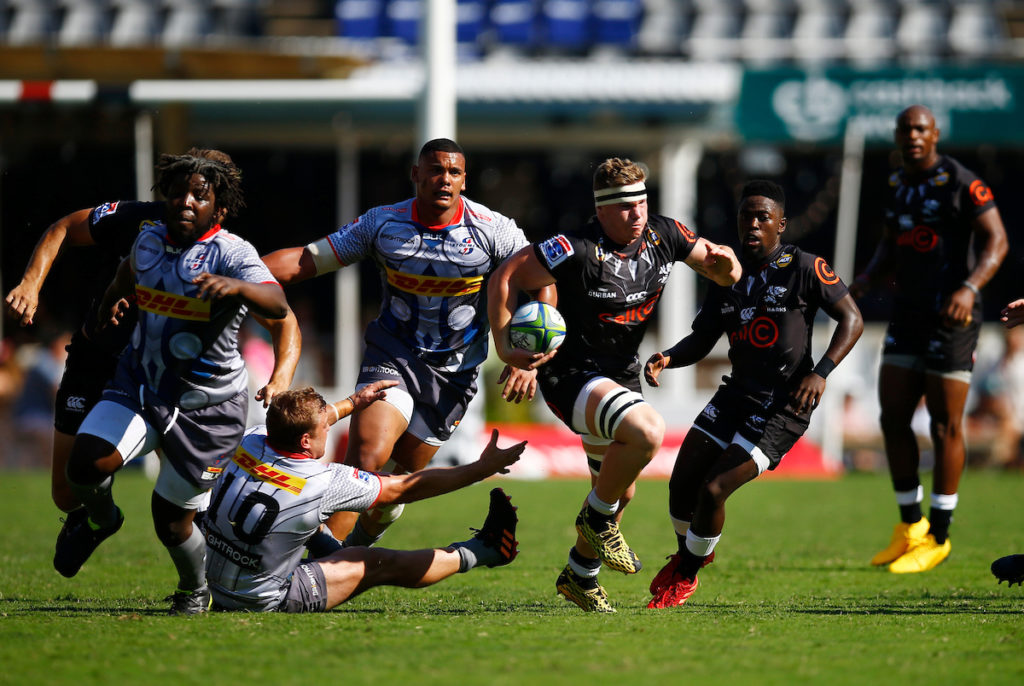The ongoing ban of sporting events suggests that a return to action in June – even in the shape of a domestic tournament behind closed doors – is unlikely, writes JON CARDINELLI.
On Thursday evening, president Cyril Ramaphosa addressed the nation and declared that some restrictions will be eased on 1 May. Certain businesses and services will resume operations while much of the nation will continue to remain at home.
Ramaphosa unpacked the five lockdown levels. Next Friday, South Africa will progress from Level 5 to Level 4. This progression won’t mean much for rugby, though, as the president confirmed that the ban on sporting events and mass gatherings will remain.
How will the latest announcement impact on rugby? Unfortunately, a return to action may be further delayed.
Earlier this week, SA Rugby unveiled its plans to resume the season via a six-team domestic competition – which could potentially run from June to August. Australia and New Zealand are reportedly keen to stage similar local tournaments. The three Sanzaar nations are looking to fill the gap before international travel – and thus international competitions like Super Rugby – can resume.
SARugbymag.co.za understands that the resumption process is more complicated than it appears. Last month, SA Rugby’s head of athletic performance Aled Walters called on all South African players to maintain a high level of fitness during the period of isolation. Walters said that there would be a period of adjustment once the lockdown was lifted and that players who fell behind in terms of conditioning and fitness would be more susceptible to serious injuries once competition resumed.
ALSO READ: ‘Work rate key during lockdown’
More recently, a top Springbok player told this website that everyone will undergo a ‘mini-preseason’ when the lockdown is eventually lifted. The period of reconditioning could be anywhere between four and six weeks – the exact timeframe will depend on the length of the lockdown.
Put simply, the makeshift domestic competition may start four to six weeks AFTER players get the green light to resume full training. If the government had given athletes the thumbs up to resume training on 1 May, then a restart in mid-June may have been possible. As it is, the players will continue to wait to hear when it’s safe to return to training and the return to action will be further delayed.
It’s also interesting to note that different regions may be subject to different lockdown levels over the next few months. The areas that have been hit the hardest by Covid-19 infections, namely the Western Cape and Gauteng, are unlikely to host sporting events before other regions.
Inter-provincial travel is restricted at present. When that restriction is eased, could we see a domestic tournament being staged in one region or city? Around the world, various sporting codes and leagues are making similar plans to get all their teams into one safe area and resume competition.
ALSO READ: White pessimistic about Super Rugby restart
Financial losses are expected to run into the hundreds of millions. In South Africa, it’s been confirmed that players will take a pay cut. Some reports have suggested that SA Rugby’s new financial plan will force players to seek opportunities abroad – even though overseas clubs are also battling to pay their existing staff.
The Covid-19 crisis will leave a mark on the local and international game. At this point, it’s still hard to say how long rugby will take to recover.
There is no definitive return date. As the weeks go by and more losses are suffered, the existing plans will need to adapt and change.
Most players have embraced the lockdown as a challenge and have opted to post their home workouts on social media. There is only so much the athletes can achieve in isolation, though, and they may have a lot of catching up to do when they eventually return to training at their respective high performance centres around the country.
Photo: Steve Haag/Gallo Images





